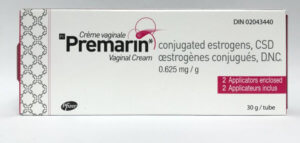It is part of “folk lore” that as men grow older, they become much more susceptible to heart problems. There is little doubt that people believe that men are more likely to develop serious heart disease as they age. In fact, a study conducted by the Harvard Medical School showed that the risks of having a heart attack or stroke increase by as much as 40% after retirement. This kind of research tends to cement in our minds the idea that age-related heart problems are primarily associated with men.
But it’s hard to find similar research done into what happens for women as they age. We all know of the more common effects of menopause such as hot flashes, vaginal dryness, restless leg syndrome, insomnia, emotional and psychological disturbances. All of these, as well as the other symptoms of menopause, can be attributed to the steep fall in hormone levels, especially estrogen, once a woman passes beyond her years of fertility.
The levels of estrogen and progesterone fall by between 80 – 90% for most women between the ages of 45 to 50. But, as well as these better-known consequences of the fall-off in hormone levels, there are some potentially serious outcomes that we are hoping to make you aware of. You should be using this information, we hope, to have a good discussion with your doctor so that you can minimize the heart risks that are known to face menopausal women.
What does low estrogen mean for your heart?
Apart from controlling your fertility when you are in your breeding years, estrogen has many side effects on the whole body. For direct relevance on your heart’s health, know that it helps keep your arteries flexible. Once your estrogen levels start to fall, the basic cause of heart problems – hardening of the arteries – can increase the risk of a heart attack. Along with that, the chances of a steep rise in your blood pressure are almost doubled. High blood pressure damages the smooth inner linings of your artery walls. In the long run, stiffer blood vessels make it more likely that you could suffer a stroke due to a blockage.
More direct damage to your arteries can come from the changes in your sleep cycle. Aging itself can lead to troubled sleep, but for menopausal women, there are added disturbances like night sweats, restless legs and mood swings. Poor sleeping patterns reduce the time your heart has to rest and can harden the cholesterol plaque, raising your risk of heart disease.
Controlling your weight can be harder when hormone levels are reduced. The metabolic processes used to break down food for energy slow down by around one third. Slower metabolism makes it more difficult to control your weight.
As well, slower metabolism increases the risk of insulin resistance leading to type 2 diabetes, raised cholesterol, high blood pressure, and obesity — all of which raise your odds of heart disease. When cholesterol and fatty substances build up on the inner walls of your arteries due to aging, you are at risk of developing atherosclerosis, or hardening and narrowing of your arteries. It can restrict the blood flow to your heart and increase the risk of a heart attack.
What can you do to raise your heart’s health?
The North American Menopause Society has a good guide for menopausal women on how to keep your heart healthy in menopause. A few of the key pointers are:
Stop smoking! “Women who smoke are two to six times more likely to have a heart attack than are nonsmokers.” And the best part is that no matter how long you have been a smoker, there are immediate and substantial improvements to your general health, and most especially to your heart’s health.
Control your blood pressure, by limiting your consumption of salt, eat more vegetables, grains, fruits and low-fat dairy and less red meat.
Exercise regularly. Just walking is great exercise for your heart and you should try for 20 minutes a day or more. Of course, even harder workouts, swimming, running and all other forms of exercise are great, as long as you are not pushing your heart too far.
What medications can doctors prescribe to keep your heart in good shape?

Of course, your doctor makes the ultimate decisions on what is best for you. The two most common treatments for menopausal women are Hormone Replacement Therapy, in which estrogen is boosted back up to pre-menopause levels. One drug often prescribed for this is Premarin, which is a member of the class of drugs known as estrogen derivatives. It contains conjugated estrogens and works to supply the estrogen hormones that have been reduced in menopausal women. It will alleviate the symptoms such as hot flashes, and will prevent osteoporosis.
Another common symptom of menopause is vaginal dryness. Although on its own it is not a danger to your heart, it is a contributor to other factors like insomnia and mood swings that can trigger many effects on your heart. A simple treatment for vaginal dryness is Premarin Vaginal Cream. The vaginal cream directly soothes the affected areas around the vagina that have become irritated, dry or inflamed due to the fall in levels of estrogen. At the same time, it is delivering supplemental HRT estrogen.















